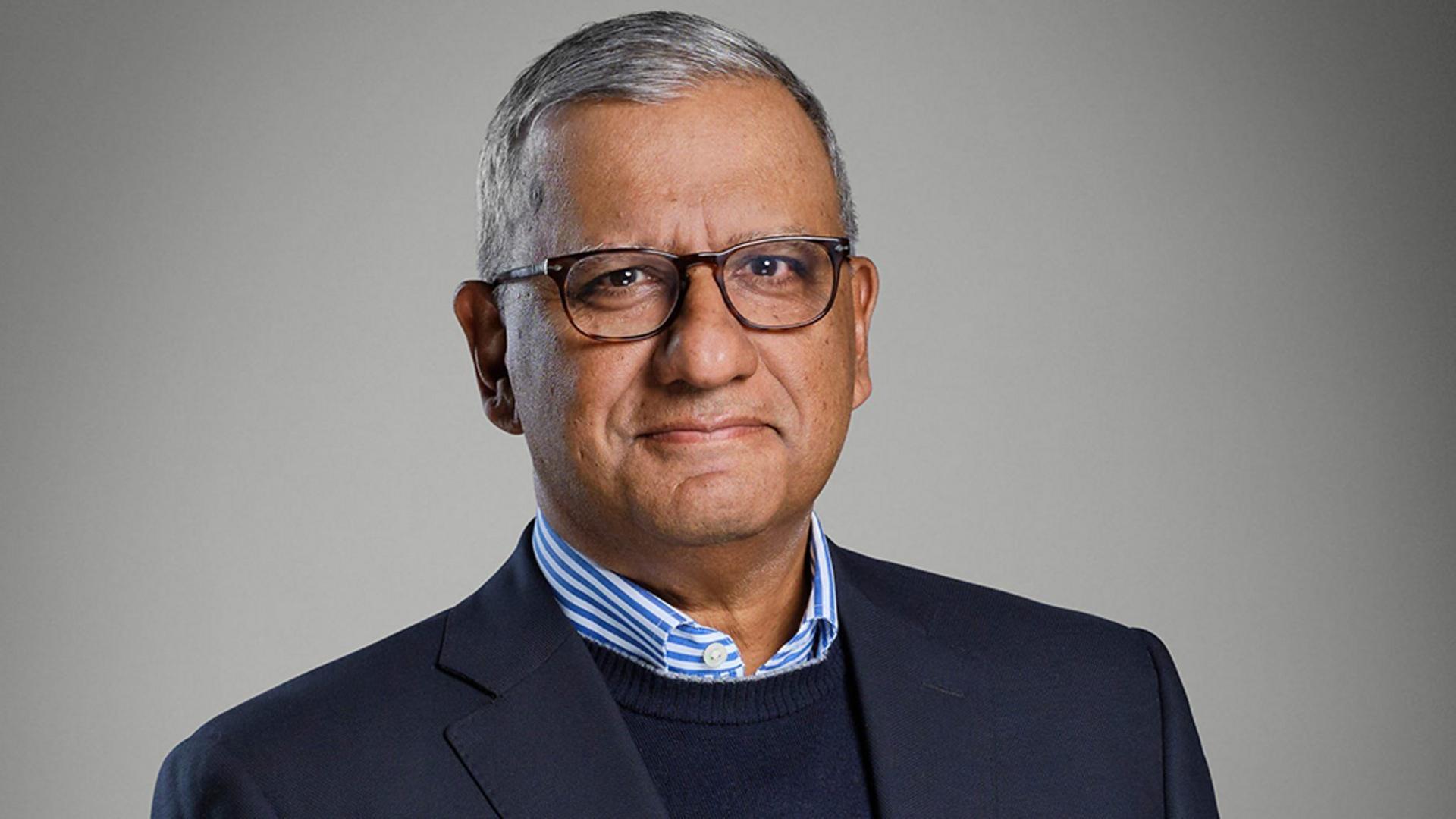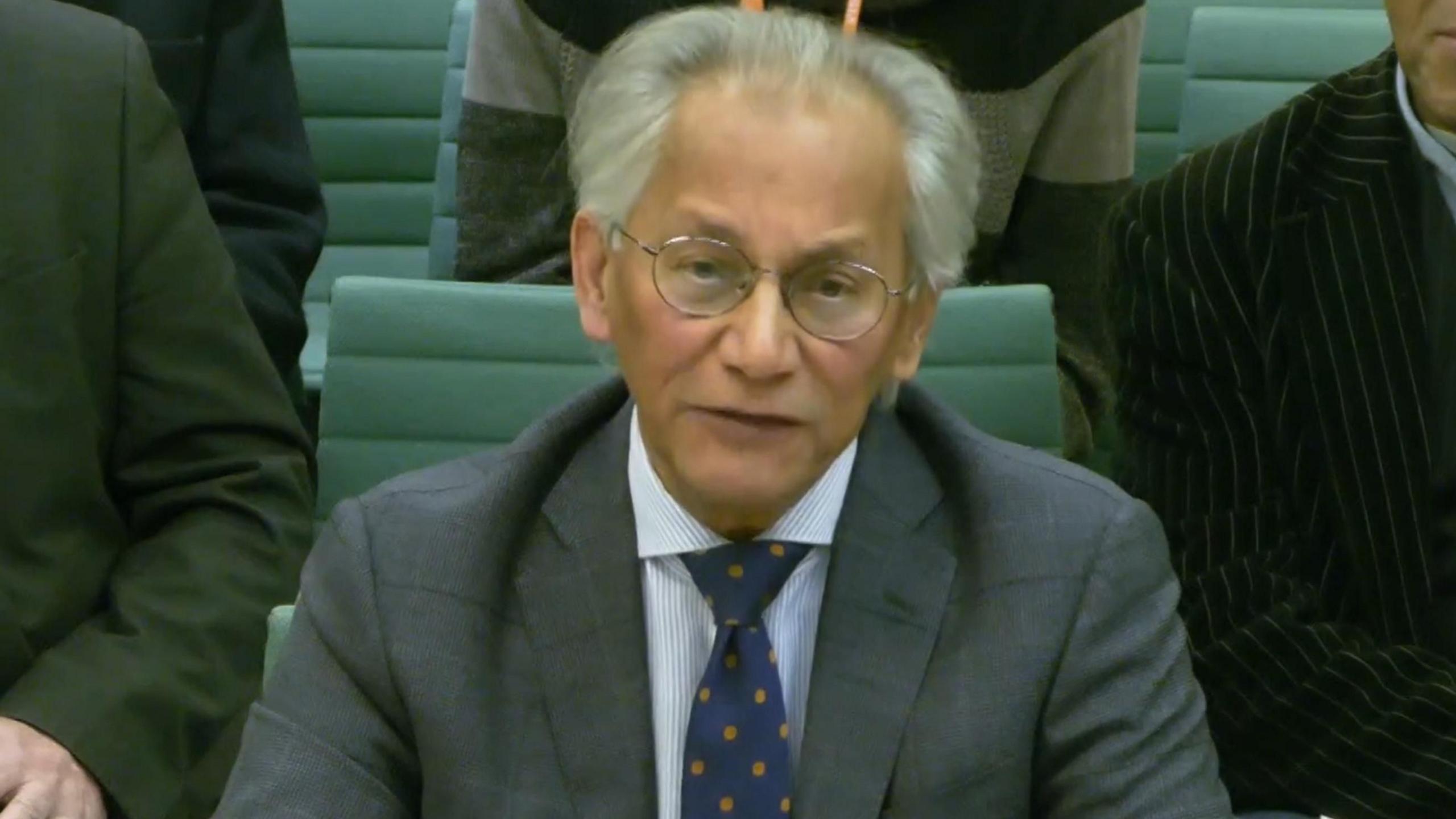Ex-BBC board member criticised chair's handling of bias crisis in resignation letter

- Published
A former BBC board member who quit last week has shared his resignation letter with BBC News, shedding new light on the events that led up to the departures of the corporation's director general and CEO of news.
Shumeet Banerji resigned on Friday, citing "governance issues" but the full reasons were not known until now.
In his damning letter, he said news boss Deborah Turness was told that "she did not have the confidence of a majority of the board".
But, Banerji wrote, he was "not invited to any meeting where a matter of such importance was to be discussed".
The details of the letter come a day after the corporation's chair, Samir Shah, told a select committee of MPs that he believed he had consulted Banerji, and the pair had had a "26 minute call".
Banerji told BBC News on Tuesday he had followed the discussion at the committee with interest.
He added: "My resignation letter might clarify my reasons for resigning. It might also serve to inform misconceptions which may have arisen for committee members and viewers."
Davie and Turness resigned as a result of the fallout over a Panorama episode that edited together parts of a 2021 speech by US President Donald Trump.
It was sparked by a leaked memo to the board sent by a former external adviser, Michael Prescott.
Since then, concerns have been raised in some quarters about how the BBC board operates. The board is responsible for oversight and strategy of the corporation.
In his letter, Banerji wrote: "I will not be seen as a participant in a board decision on which I was not consulted, nor one which in my view has had adequate discussion."
On Monday, Shah was asked directly by MPs about Banerji's resignation and rejected his claims that he hadn't been consulted about the events leading to the departures of Turness and Davie.
"I am both disappointed and surprised by what he has to say", Shah replied, telling the committee: "I would say he was consulted".
Banerji's resignation letter gives a different version of events. He said two board meetings had been held to discuss the crisis at the corporation after the Prescott memo leaked.
He had been unable to join the first meeting, but on the second had been surprised to learn that Turness had already been told that "she did not have the confidence of a majority of the board".
"I was not invited to any meeting where a matter of such importance was to be discussed," he wrote.
"Nor has your office asked for an urgent need to discuss where we are. I requested a phone call with you yesterday.
"You may well have spoken to each director and asked for ayes and nays but the reason there are boards is to have reasoned discussions about important matters. This has not happened."
Five key moments after MPs question top BBC figures
- Published1 day ago
Chairman survives MPs' questions – but crisis at corporation is not over
- Published22 hours ago
Ros Atkins on… MPs examining the BBC memo
- Published23 hours ago
He also said he was not surprised Davie had also resigned as he would have seen the board's lack of confidence in his head of news as "a direct assault on himself as the editor-in-chief and CEO".
He suggested the board had acted "in the white heat of press excoriation" and concluded: "The lesson for detractors of the BBC is leak and launch. Will the departures of two of our most senior, respected and loved executives make the BBC stronger? Somehow, I doubt it very much."
The release of the full letter adds to the pressure on Shah, after the culture committee chair Caroline Dinenage on Monday questioned whether the BBC was in "safe hands" under him.

BBC chairman Samir Shah gave evidence to MPs yesterday
Banerji's letter is also an insight into what was happening behind the scenes as the crisis unfolded. In the committee hearing, board members were at pains to present a position of unity, although this letter paints a different picture.
It also helps explain what one board member Caroline Thomson described a "continuing and sharp difference of opinion".
BBC News had already reported that the board blocked Turness and the news division from apologising for the Donald Trump edit, after the Telegraph began reporting on the leaked memo.
In his appearance before the committee on Monday, Shah told MPs the apology "took its time" because "I needed to make sure that what I was apologising for was fully sourced and fully right".
Banerji is suggesting the board made Turness' position untenable.
One insider to the process has told me she had already decided to resign because she didn't have confidence in the board and viewed them as a "circular firing squad". The crisis had escalated beyond recovery and she felt it was the right thing to do, the insider added.
Banerji, a non-executive board member since 2022, is the founder of an advisory and investment firm that specialises in technology companies. He previously led Booz & Company, a management consultancy firm.
The 12-member board of the BBC is responsible for ensuring it delivers on its public service mission and it sets the strategic direction of the corporation, which is largely funded by licence-fee payers.
Non-executive members hold the BBC's executive management to account. The board is chaired by Shah, a former documentary maker.